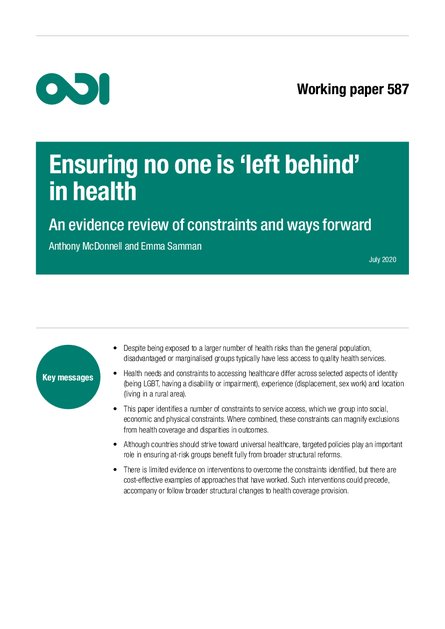
Despite the fundamental importance of health, both intrinsically and in contributing to achievements in other dimensions of well-being, access to good quality basic healthcare is sorely lacking. Meanwile, the current Covid-19 pandemic is drawing into relief the risks posed by a lack of universal coverage, to people who are excluded and the societies within which they reside, and amplifies the need for universal health coverage.
This paper provides a selective review of the academic and grey literature on impediments to accessing quality healthcare for at-risk groups and and addresses ways that they can be tackled. Five groups that are often left behind by healthcare systems for different reasons are considered in this research: lesbian, gay, bisexual and transgender (LGBT) individuals; sex workers; forced migrants and displaced people; people with disabilities; and people living in rural areas. The paper examines the underlying social, physical and economic constraints, and ways in which these interact with one another in ways that can magnify exclusions, and concludes with highlighting core evidence gaps that need to be addressed as a first step to respond to health disparities.